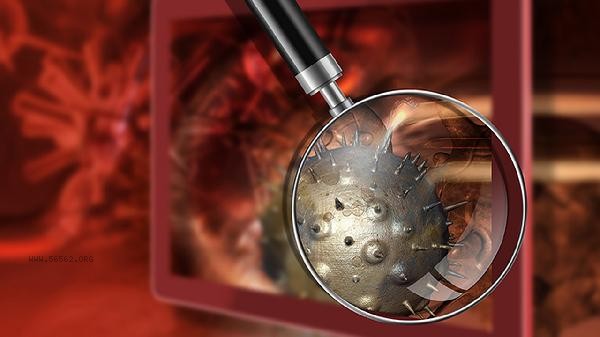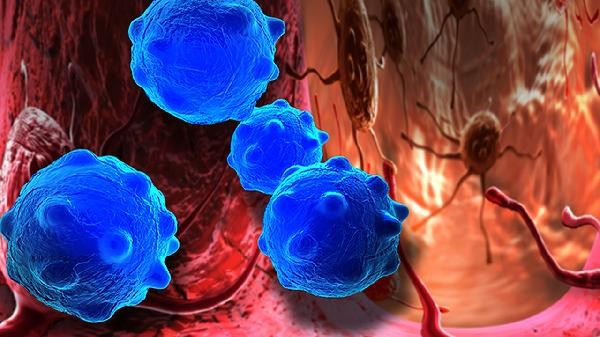A high basophil ratio may be related to allergic reactions, chronic inflammation, myeloproliferative diseases, endocrine disorders, drug reactions, and other factors. Diagnosis can be confirmed through blood routine examination, bone marrow puncture, allergen testing, and other methods. Eosinophils are a type of white blood cell with a relatively low normal proportion. If they continue to increase, a comprehensive evaluation should be conducted in conjunction with other indicators.

1. Allergic reactions
When exposed to allergens such as pollen, dust mites, or seafood, eosinophils release histamine to participate in the immune response, leading to a temporary increase in the ratio. Often accompanied by symptoms such as skin itching and urticaria. Avoid contact with allergens again, and if necessary, follow medical advice to use antihistamines such as loratadine tablets and cetirizine hydrochloride tablets.
2. Chronic inflammation
Chronic inflammatory diseases such as rheumatoid arthritis and ulcerative colitis can stimulate bone marrow hematopoietic function, causing compensatory increase in eosinophils. Patients may exhibit symptoms such as joint swelling and diarrhea. Targeted treatment is required for the primary disease, such as the use of anti-inflammatory drugs such as methotrexate tablets and sulfasalazine enteric coated tablets. 3. Bone marrow proliferative diseases such as polycythemia vera and chronic myeloid leukemia can lead to abnormal bone marrow proliferation, resulting in a significant increase in the absolute value of eosinophils. May be accompanied by symptoms such as splenomegaly and night sweats. Diagnosis needs to be confirmed through JAK2 gene testing, and treatment requires targeted drugs such as hydroxyurea tablets and interferon alpha-2b injection.
4. Endocrine disorders
hypothyroidism, diabetes and other endocrine diseases may affect the process of granulocyte differentiation and maturation, resulting in a slight increase in the ratio. Common manifestations include fatigue and weight gain. Thyroid hormones, blood glucose and other indicators need to be checked, and drugs such as levothyroxine sodium tablets and metformin hydrochloride tablets should be used to regulate endocrine function.

5. Drug Reactions
Long term use of estrogen preparations, glucocorticoids, and other drugs may interfere with the bone marrow microenvironment, leading to a transient increase in eosinophils. Normally, after stopping medication, normal recovery can be achieved. If necessary, the medication plan should be adjusted to avoid self medication changes. When the eosinophil ratio is found to be high, it is recommended to recheck the blood routine 2-4 weeks later to observe dynamic changes. It is necessary to maintain sufficient sleep in daily life and avoid overexertion. Pay attention to balanced nutrition in diet, and increase intake of lean meat, eggs, and other foods rich in vitamin B in moderation. If accompanied by symptoms such as persistent fever and weight loss, it is necessary to seek timely medical attention at the hematology department to complete bone marrow cytology examination.









Comments (0)
Leave a Comment
No comments yet
Be the first to share your thoughts!